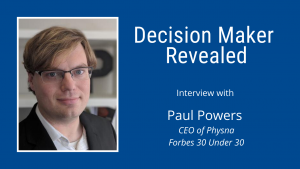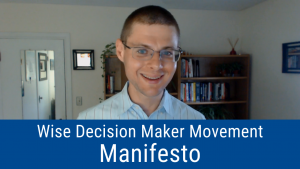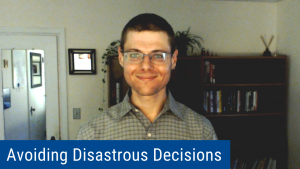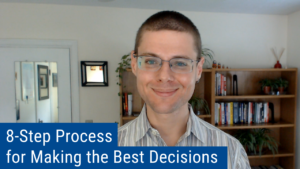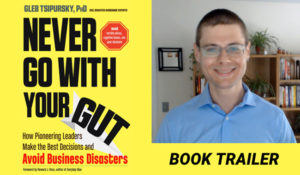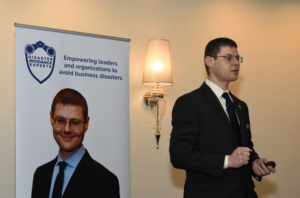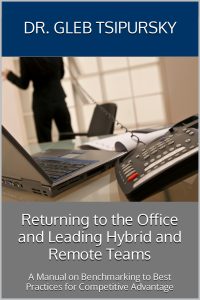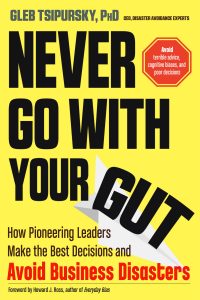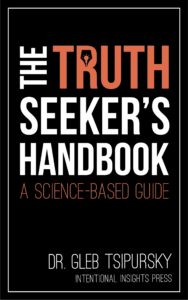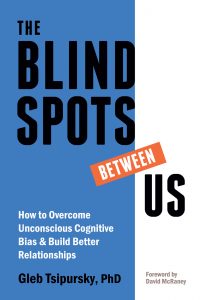To prevent disasters in transitioning to working from home, imagine that your transition completely failed. Then, brainstorm all plausible reasons for failure, and generate solutions to these potential problems. Do the same to maximize success.
Using the three social intelligence methods during a stakeholder meeting will help you learn the truth about your stakeholders’ needs, which will empower you to solve their problems and foster stronger relationships with them.
Your relationships will be undermined or even destroyed by the COVID-19 coronavirus pandemic, unless you take proactive steps right now to save them by treating our current conditions as the new normal.
Asking the 8 Powerful Questions during a pre-engagement stakeholder assessment will lead to better engagement and stronger relationships with your stakeholders.
Official guidelines for COVID-19 coronavirus pandemic preparation assume a wildly optimistic scenario due to dangerous judgment errors known as cognitive biases. You need to instead prepare for a realistic pessimistic scenario.
If you care about your bottom line, hire women over men. Due to gender discrimination, women had to work harder to get the same career position as men, and you will on average get a better worker if you hire a woman.
When it comes to shopping, men tend to take more risks, while women prefer to take their time to get the best possible deal. Both genders are prone to mistakes. However, you can train your mind to make the wisest shopping decisions this Valentine’s Day.
Our feelings drive us to avoid short-term losses, which often results in us failing to take worthwhile risks and actually losing more in the long term. This problem comes from a dangerous judgment error called loss aversion.
Our brains cause us to drastically underestimate both the likelihood of a disaster occurring and the impact if it does. To address this dangerous judgment error known as the normalcy bias, we need to go far beyond our intuitions in planning for catastrophes.
Dr. Gleb Tsipursky interviews Paul Powers, CEO of Physna. Paul is the founder of multiple successful tech-focused enterprises and a member of the prestigious Forbes 30 under 30.
The choice that feels most comfortable to your gut is often the worst decision for your bottom line. To be a truly wise decision maker, you have to adopt counterintuitive, uncomfortable, but highly profitable techniques to avoid business disasters by making the best decisions. That’s the key take-away message of this episode of the Wise Decision Maker Show, which describes the Wise Decision Maker Movement Manifesto.
Knowledge Management (KM) is the art and science of leveraging individual and collective knowledge for the benefit of all stakeholders
To get colleagues in denial to believe the truth, use EGRIP: 1) discover their emotions; 2) then their goals; 3) build up rapport; 4) provide info to change their mind; 5) offer positive reinforcement for them updating their beliefs.
We intuitively overestimate how well others read us and how well we read others in negotiations, a dangerous judgment error called illusion of transparency. This mental blindspot leads to disastrous results in negotiations and other important communications.
Cognitive biases lead to typical business strategic analyses such as SWOT giving a false sense of comfort and security. The result? Appalling oversights that ruin profitable businesses and bring down high-flying careers.
Because we usually feel that everything is going to go according to plan, we don’t pay nearly enough attention to potential problems and fail to account for them in our plans. This problem stems from a dangerous judgment error called planning fallacy.
Avoiding Disastrous Decisions involves:
1) Deciding the decision criteria
2) Weighing importance of criteria
3) Grading your options using the criteria
4) Checking with your head and gut
5) Sticking to your choice
How can you make everyday decisions quickly? Answer 5 key questions: 1) What info do I need? 2) What cognitive biases might harm me? 3) What would a trusted adviser say? 4) How might this fail? 5) Why might I revise this decision? This episode of the “Wise Decision Maker Show” provides a videocast and podcast about these 5 key questions that you can use to ensure you make the best everyday decisions, in business and in life.
In order to make the best decisions, follow these decision-making process steps:
1) Identify need for decision
2) Get relevant info
3) Decide goals
4) Develop criteria
5) Generate a few viable options
6) Weigh options
7) Implement decision
8) Revise implementation and decision as needed
Get a free book sample at DisasterAvoidanceExperts.com/NeverGut. You can also get the book on links from that same website, or at a bookstore near you. I want you to take advantage of the strategies in this book to maximize your success and leave business disasters to your competition.
Consumers mostly make their shopping choices with their gut. As a result, they make many poor decisions. One of these decisions is to rely increasingly on online user reviews compared to recommendations from friends, even though user reviews are often misleading.
To make changes, the rewards must be a 2 or more or you might as well consider other potentials. On the negative side if the potential downsides are nearly a 4 or more then you may want to forget about taking such a risk.
To avoid decision disasters and defeat cognitive biases, develop the 12 critical skills that cognitive neuroscience and behavioral economics show are needed for mental fitness.
Effective strategic planning involves: 1) Identifying potential threats and opportunities; 2) Planning how to deal with them; 3) Reserving sufficient resources to address threats and opportunities; 4) Making your plans resilient and flexible.
The choice that feels most comfortable to your gut is often the worst decision for your bottom line. To be a truly wise decision maker, you have to adopt counterintuitive, uncomfortable, but highly profitable techniques to avoid business disasters by making the best decisions.
Protect yourself from decision disasters by getting our free Wise Decision Maker Course, which includes 8 weekly video-based modules. As a bonus, you'll receive a free copy of our Assessment on Dangerous Judgment Errors in the Workplace when you sign up.











